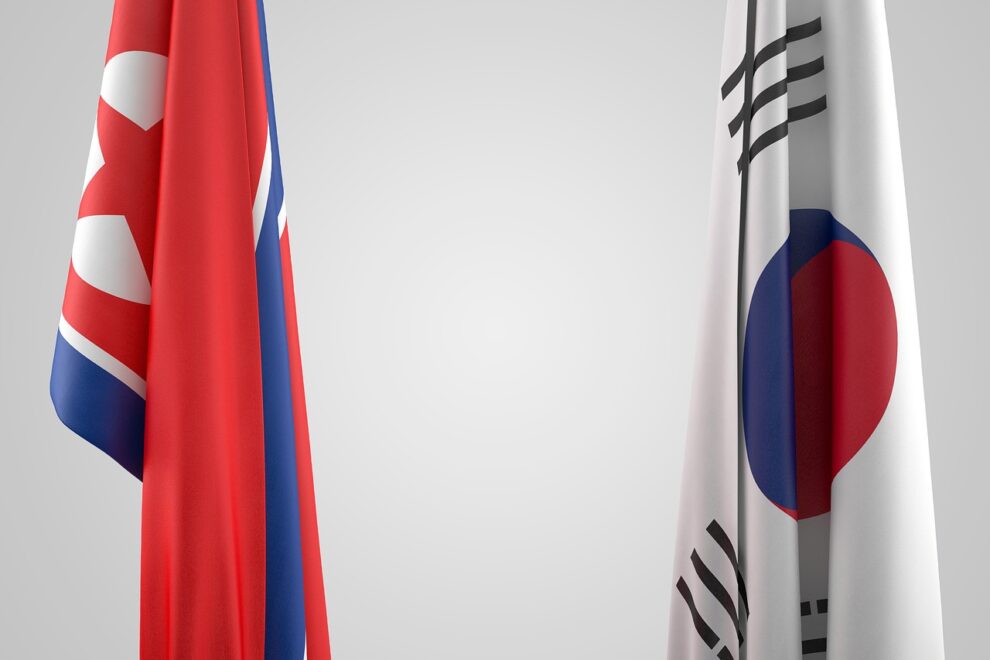Days of North Korean live-fire drills close to its contested maritime border have a clear aim, experts and officials say: Pyongyang is trying to meddle in South Korea’s upcoming general election.
Pyongyang’s military has fired hundreds of artillery shells near two sparsely populated South Korean border islands since Friday, prompting evacuation orders, ferry cancellations and counter-drills.
North Korea has defended its drills as routine military exercises, saying they posed no risk to the islands, and accused Seoul of “confrontation hysteria”.
But with South Korea’s crucial general election just three months away — and control of the country’s parliament up for grabs — experts say Pyongyang has ulterior motives for flexing its military muscles.
“North Korea is trying to induce political polarisation within South Korea,” Park Won-gon, a professor at Ewha University in Seoul, told AFP.
“It’s clear that they are trying to influence the elections and to do that, they need something controversial.”
Pyongyang may be using its live-fire drills near the maritime border, known as the Northern Limit Line, to highlight the purported failures of South Korean President Yoon Suk Yeol’s North Korea policy, experts say — and hurt his party’s election prospects.
Hawkish Yoon came to office in 2022 vowing to get tough on North Korea, and his party is now trying to win back control of South Korea’s parliament in the April vote.
North Korea also has a long track record of provocations ahead of key South Korean elections, experts say, as part of a broader strategy to cause disruption south of the border.
– ‘Stupid’ Yoon –
At the start of the year, North Korean leader Kim Jong Un’s powerful sister, Kim Yo Jong, issued a statement mocking Yoon while praising his “sagacious and crafty” predecessor — who is from the opposition party — in what experts said was a clear attempt to sow political division.
Yoon’s predecessor Moon Jae-in presided over a period of warmer ties with Pyongyang, including signing a 2018 military pact that created tension-reducing buffer zones along the maritime border.
But after Pyongyang put a spy satellite into orbit late last year, Yoon’s government partially suspended the 2018 deal in protest — prompting the North to tear it up soon after.
Kim Yo Jong said that Yoon’s decision to move away from the pact showed he was “stupid” and had “destroyed security as a whole”.
South Korea’s military said shells from North Korea’s recent artillery drills have landed in the now-defunct buffer zone.
Pyongyang denied this, and Kim Yo Jong claimed North Korea had conducted a “deceptive operation” to trick South Korean forces into believing they’d fired into the buffer zone — which South Korea’s military has dismissed as “low-level psychological warfare”.
North Korea appears to “be signalling that the 2018 inter-Korean military agreement is dead”, said Leif Easley, a professor at Ewha University.
Pyongyang is also “playing to its own domestic politics as much as it may be trying to sow division in South Korea”, he added.
– ‘Divide South Korean opinion’ –
South Korea’s spy agency warned as recently as December that there was a “high possibility” of military provocations from Pyongyang in 2024, “when fluid political situations are expected with the elections”.
North Korea has long staged provocations ahead of major South Korean political events.
Weeks before the last general election in 2020, North Korea fired off its banned short-range ballistic missiles four times in one month — a major show of force at the time.
Pyongyang also conducted a nuclear test just before South Koreans voted in the 2016 election.
Relations between the two Koreas are at one of their lowest points in decades after Kim Jong Un last year enshrined his country’s status as a nuclear power into the constitution and test-fired several advanced ICBMs.
At Pyongyang’s year-end policy meetings, he threatened a nuclear attack on the South and called for a build-up of his country’s military arsenal ahead of armed conflict that he warned could “break out any time”.
Such provocations are likely to continue, as the North seeks to “divide South Korea’s public opinion” on how best to deal with their neighbour, Cho Han-bum, a senior research fellow at the Korea Institute for National Unification said.
“It will continue to escalate military tensions and pursue a strategy of blaming the cause of the security anxiety on the Yoon administration.”
